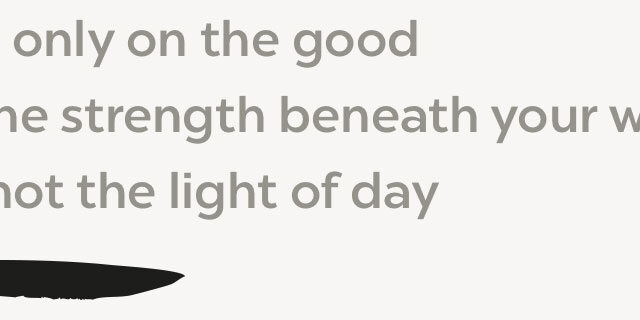Many want to become a better manager, but don’t know how. Management is one of those things people feel like they should know how to do well, despite that it’s the most difficult aspect of business that most people receive little to no training for. Especially if you already are a manager, there’s an assumption that you ought to know how to do it well. But what if you don’t?
Can you give yourself permission, wherever you are as a manager, to admit you have a ton to learn about it? Can you let yourself really feel how bad you are still at it, without beating yourself up unproductively? This requires real strength, and it’s how you become a better manager. Focusing on your strengths is important, but if that’s all you do, you’re in trouble.
In the 1970’s, Noel Burch created a model many of us learned in high school, but probably not in a way that helped you as much as it could. It’s the four stages of competence, summarized here:
- Unconscious incompetence: you don’t even know that you’re bad at something, or it doesn’t matter to you that you’re bad at it
- Conscious incompetence: you realize you’re bad at something and you think that’s bad
- Conscious competence: you’re no longer bad at it as long you are making a concerted effort to not be bad at it
- Unconscious competence: the thing you used to be bad at is now natural and easy for you (so much so that you might be bad at teaching it)
You’ve undoubtedly already moved through these stages in many domains and it’s gotten you where you are today. But there are likely one or two areas you’re having trouble with.
Why?
We all have a self-image: how we see ourselves. Some of that self-image is true. Some of it isn’t. That gap between what’s true and what’s not is off our radar, otherwise, there wouldn’t be a gap. That gap sets us up for embarrassment or even humiliation. Nobody likes finding out they’re bad at something in a way that surprises. It hurts…but only to the degree you’re attached to your self-image.
But enduring this pain is often exactly what has to happen to move from the first stage to the second, critical to becoming a better manager. The more you’re okay with realizing you’re bad at something, the faster you can start getting good. However, if you have a self-image that is convinced that you’re not bad at it, when you actually are, you’re stuck, and cannot become a better manager. As the humorist, Josh Billings said, “It ain’t what you don’t know that gets you into trouble, it’s what you’re sure you know that just ain’t so.”
Become a Better Manager By Owning How You’re Not
It’s very likely, whether you’re working to become a better manager or pursuing anything else, you’re holding yourself back because you haven’t yet been willing to surrender to the rude awakening that you’re way worse at something than you realize. You may make excuses, have your head in the sand, minimize the importance of your mistakes, etc. Anything other than facing directly into exactly how bad you are at something, traps you in the first stage. It protects you from discomfort in the short-term, but in the long-term, it can stagnate or even destroy your life. Aren’t your goals and dreams worth the investment of emotional discomfort? Do you have the strength to admit light-heartedly, “Wow, I just realized I’m really bad at X!” In that moment, the course of your entire life can change for the better. In fact, your life may be waiting for you to do so.
Weakness only stays a weakness when you hide it. When it sees the light of day, it moves toward strength automatically. If you have a manager, ask them this question, “What do I not realize I’m bad at and how can you help me?” If you have a coach, ask your coach. If you don’t have a coach yet, you may realize how important one might be now, and I’m happy to talk with you to help you see, in the context of all your strengths, achievements, and greatness, what your weaknesses are. Seeing people’s strengths and weaknesses can happen in minutes if you have the skill Do you have the courage to have that conversation? If you do, you can contact me here.







